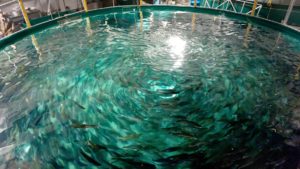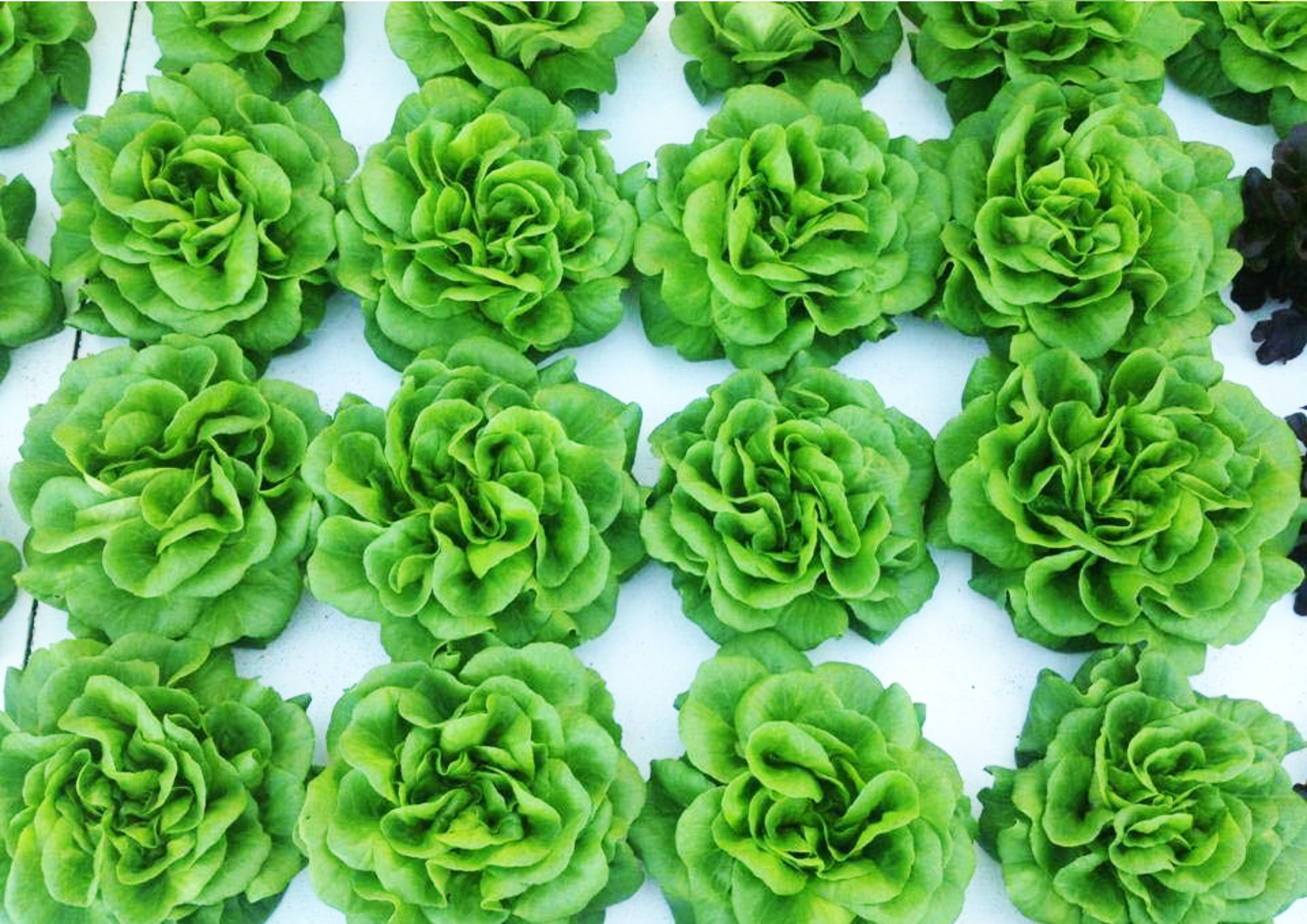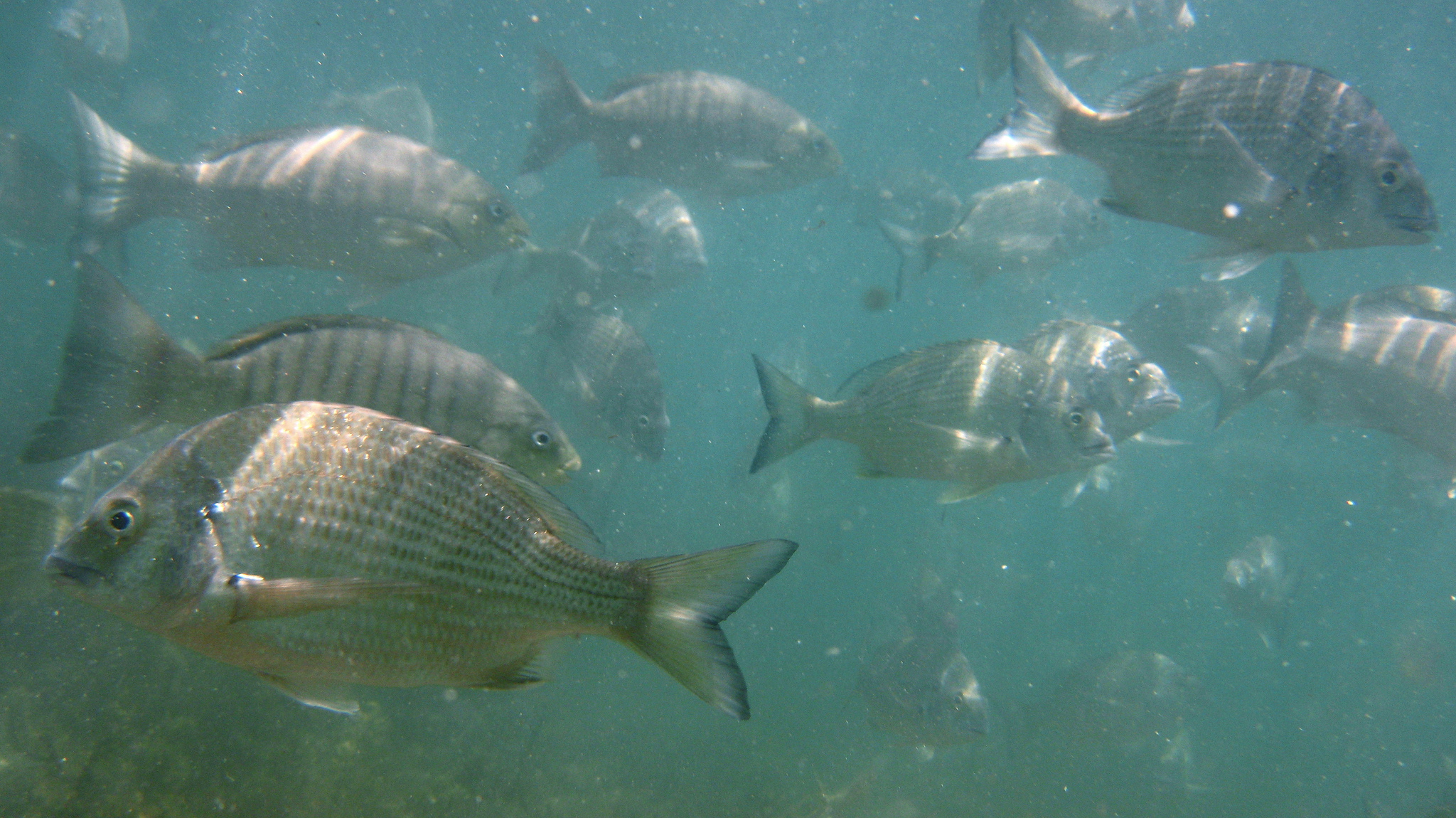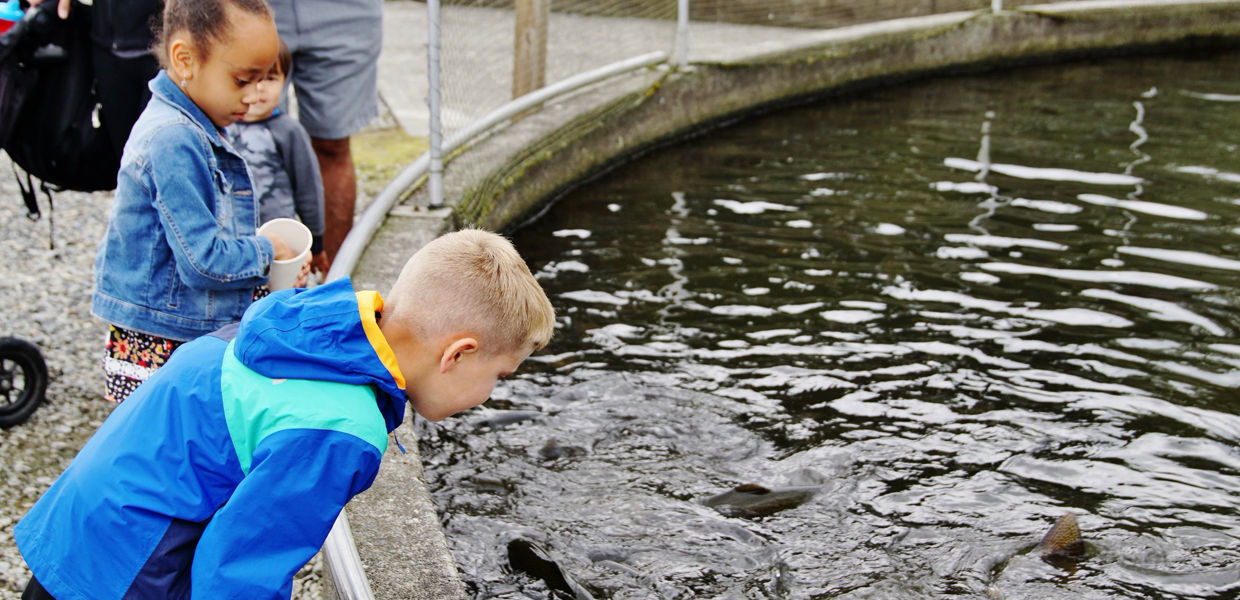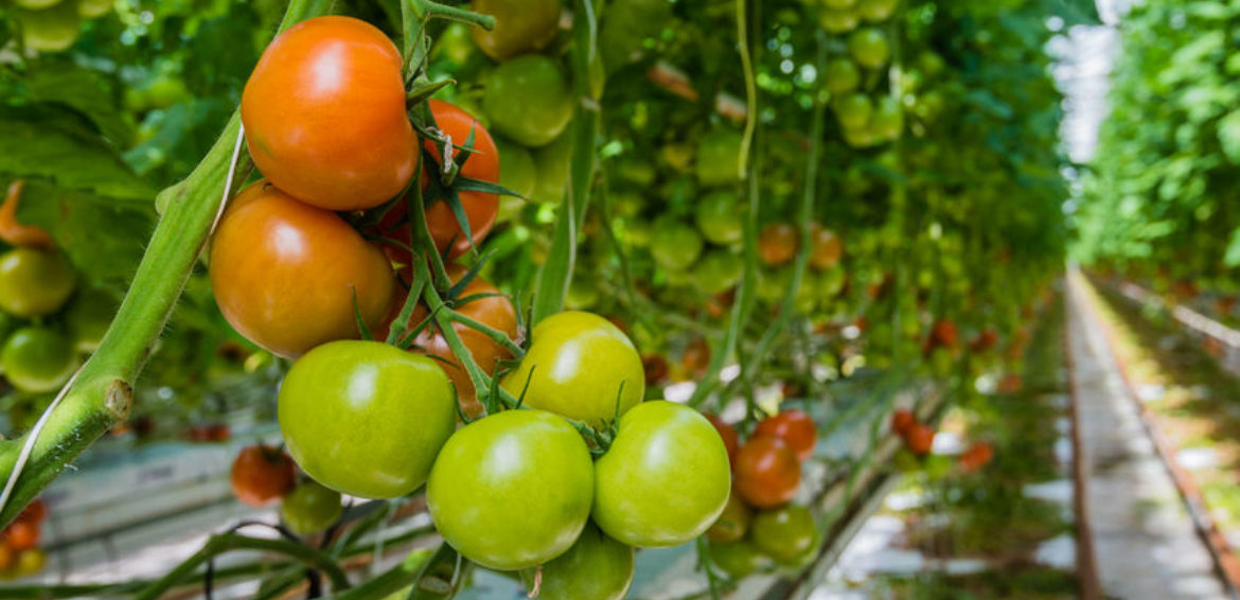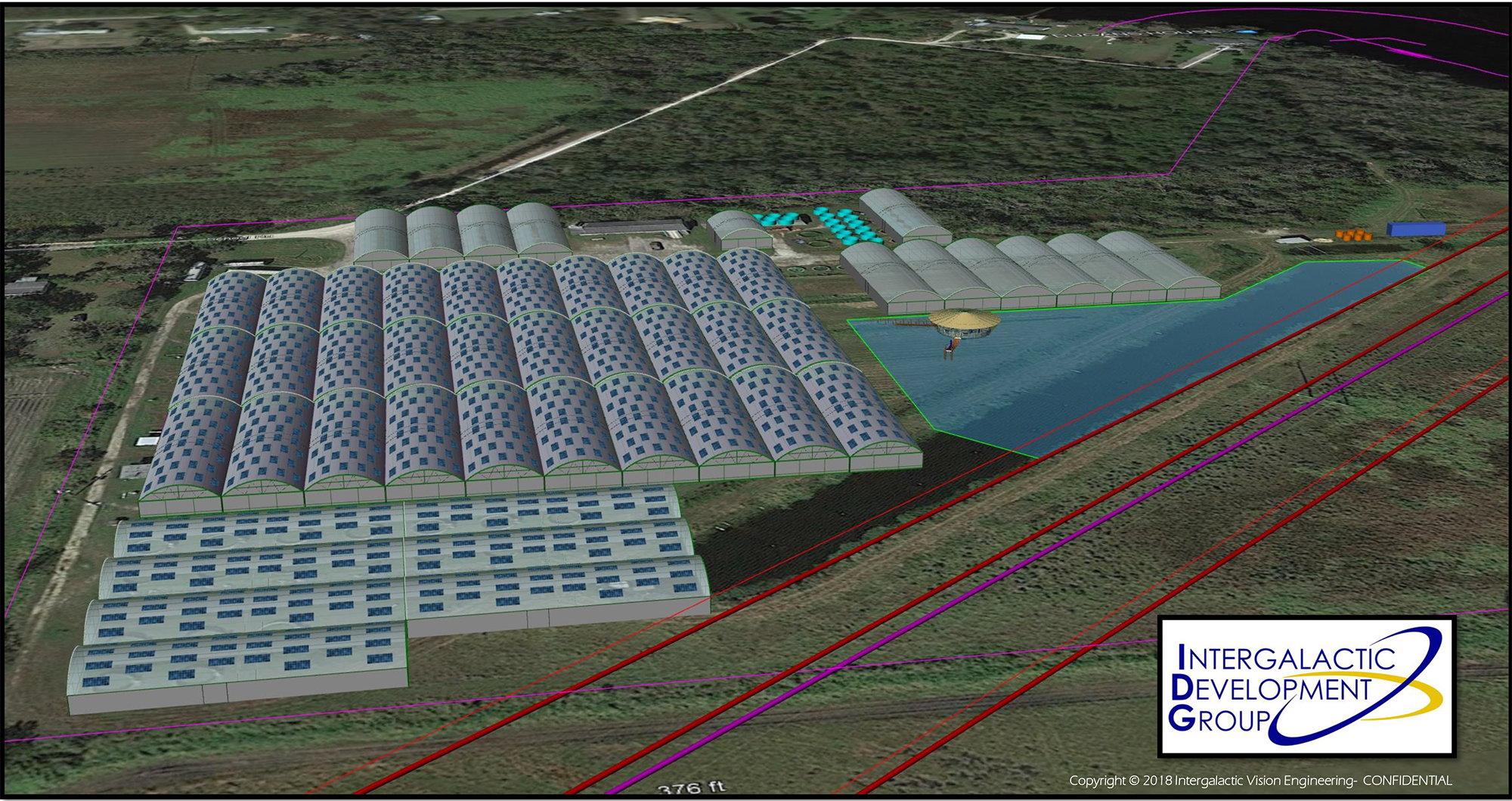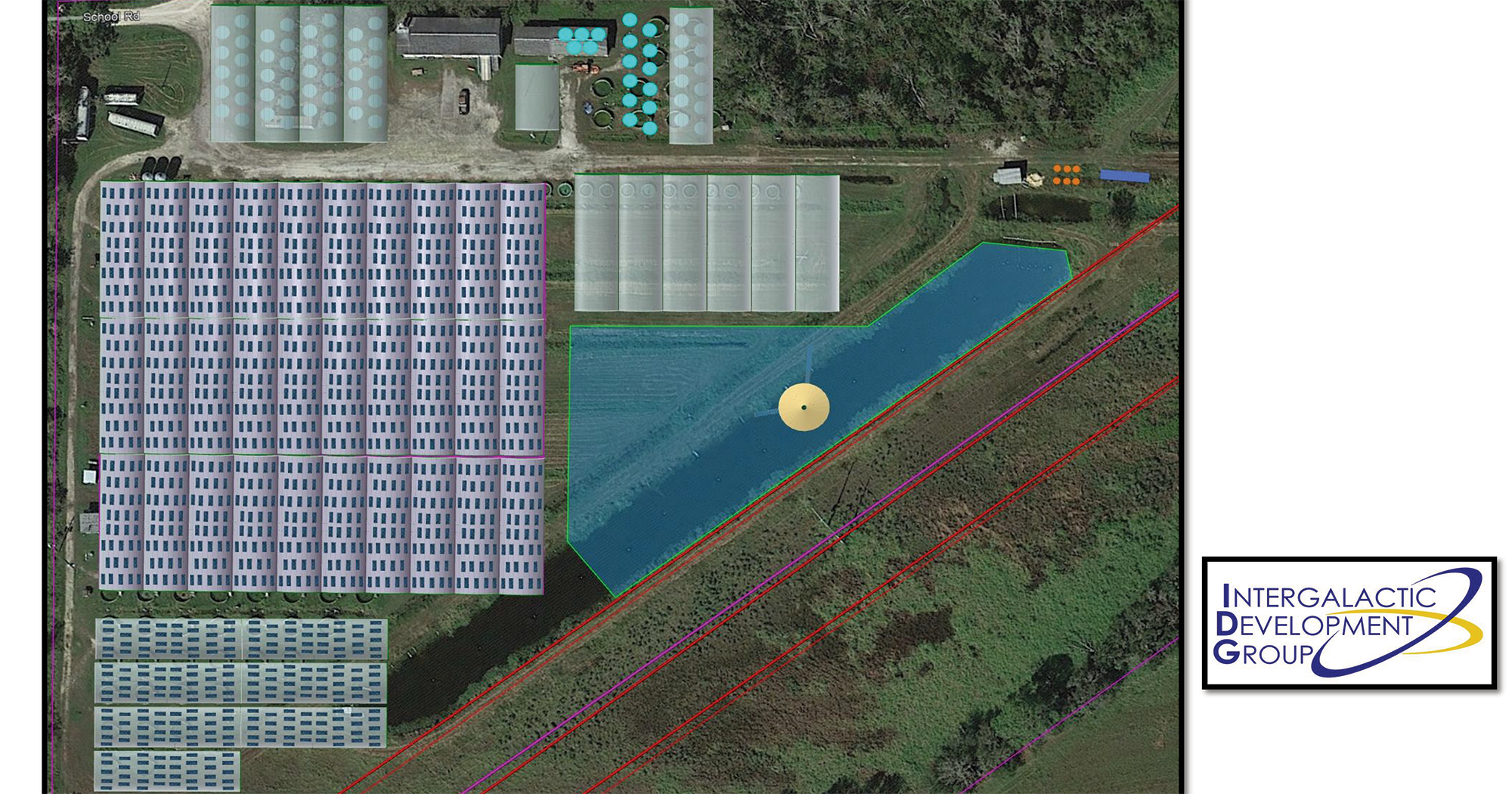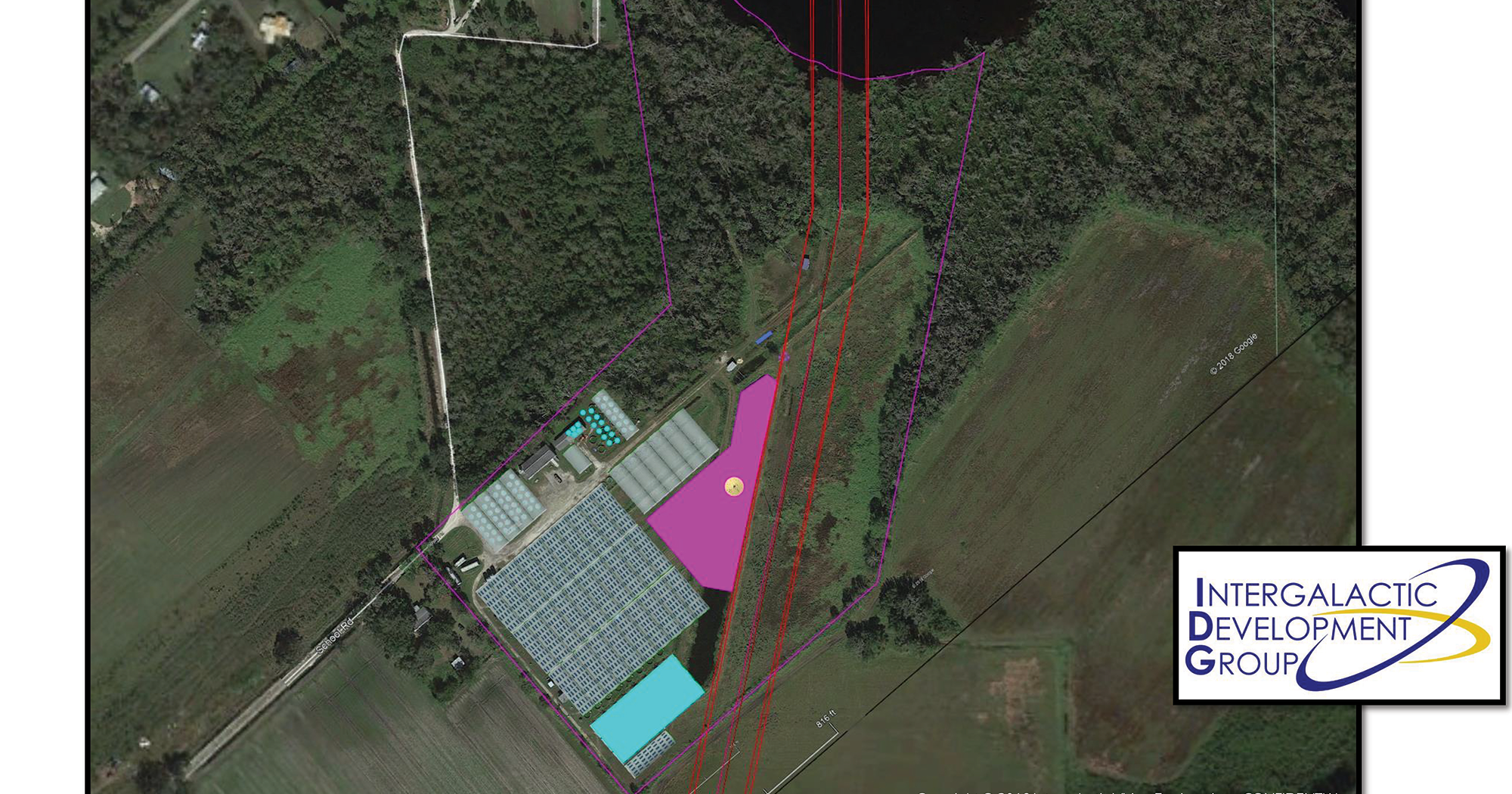A Fresh, Healthy, Sustainable and Organic Repurpose of Anguilla Fish Farm 2018
Marineland Aquaponics is successor to Anguilla Fish Farm, one of Florida’s oldest and largest aquaculture projects. Aquaponics is an extremely resourceful method of food production that combines the best aspects of aquaculture and hydroponics to create a highly productive living ecosystem for sustainable agriculture. By cultivating fish and plants in a closed loop re-circulating system, fish waste is converted to plant food using natural bacterial cycles. Marineland Aquaponics seeks to utilize cutting-edge aquaponic techniques to grow organic vegetables for our community, educate others about aquaponics potential, and demonstrate the sustainable nature of aquaponics food production.
Since 1980, approximately 140,000 pounds of harvestable weight fish were raised from fingerling to market size on an annual basis at this site. Water for the flow-through operation was sourced from the Floridan Aquifer. The permitted 3.67 MGD daily effluent discharge was based on 4.31 MGD average daily water withdrawal of the SJRWMD consumptive use permit (CUP).
Currently under construction, the entire project is planned to operate indoors in gutter connected greenhouses, consume deminimis volume of ground water and discharge ZERO effluent into the St John’s River.
Located in the federal point peninsula of Putnam County, FL bordering the Deep Creek conservation area, we are located in america’s oldest farm-to-fork production corridor founded by Spanish settlers in 1565.
What is Aquaponics?
Aquaponics is a method of food production which combines the best aspects of aquaculture and hydroponics to create a highly productive living ecosystem for sustainable agriculture. By cultivating fish and plants in a re-circulating system, fish waste can be converted to plant food using natural bacterial cycles. Organic Aquaponics seeks to utilize cutting-edge aquaponics techniques to grow organic vegetables for our community, educate others about aquaponics potential, and demonstrate the sustainable nature of our aquaponics food production.
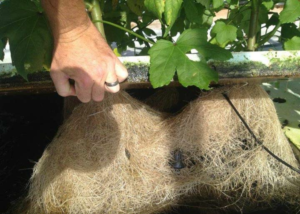 Aquaponics has its earliest roots in ancient Mayan traditions which combined fish ponds and crops which grew on rafts floating above the fish. Recent advances in aquaponics have improved overall system productivity, reduced water use and resulting waste water pollution, and improved nutrient cycling, all of which vastly improve the sustainable nature of the practice. While there are still advocates for many different methods of aquaponic production, deep water raft culture has shown significant advantages for many crop species in production density, labor requirements, and overall simplicity over gravel bed systems, nutrient film, and other techniques.
Aquaponics has its earliest roots in ancient Mayan traditions which combined fish ponds and crops which grew on rafts floating above the fish. Recent advances in aquaponics have improved overall system productivity, reduced water use and resulting waste water pollution, and improved nutrient cycling, all of which vastly improve the sustainable nature of the practice. While there are still advocates for many different methods of aquaponic production, deep water raft culture has shown significant advantages for many crop species in production density, labor requirements, and overall simplicity over gravel bed systems, nutrient film, and other techniques.
The practice of aquaponics is experiencing significant growth worldwide as permaculturists embrace the opportunities of space saving and sustainable food production. Commercialization in the United States at this time has been limited despite the incredible opportunity it presents and the improved economy of scale it offers over the more common backyard systems. By producing high quality and nutritious vegetables in amounts 8-10 times greater than in soil, we believe aquaponics presents tremendous opportunities for commercial and urban farmers. To ensure the success of Marineland Aquaponics, we will establish a highly productive and stable ecosystem and demonstrate the superior taste and shelf life of organic aquaponics vegetables in order to differentiate ourselves from traditionally grown produce – commonly shipped from California or other western states.
AQUAPONICS STATISTICS
AQUAPONICS STATISTICS
EDUCATION
S.T.E.M.Science:
Biology, Physics, Chemistry, Botany
Technology:
Hydraulics, Filtration, Aquaculture
Engineering:
Fluid Mechanics, Process Design
Mathematics:
Flow rate calculations, Calculus
FOOD
The Aquaponic Cycle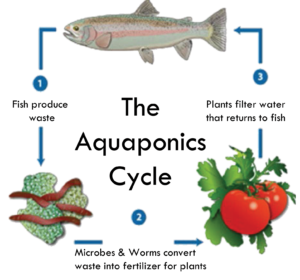
FRESH & ORGANIC
• Recreating Root Zone Food Web
• Bio-mimicking Eco system
• Complete Nitrogen Cycle
• Fish waste – excellent source of balanced organic NPK
• Replicating ancient science of using river water for irrigation which contained rich nutrients from effluents of large number of fishes
• Three different Food Zone
